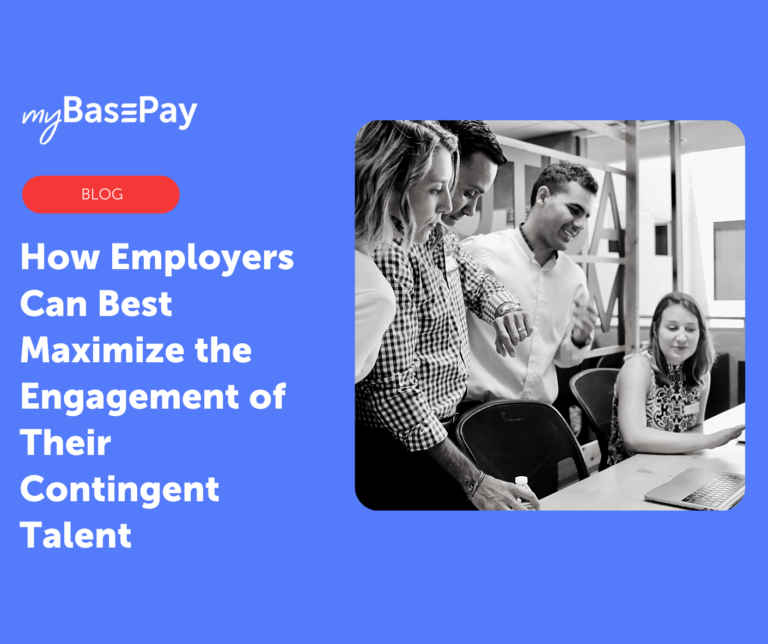6 Proven Ways Businesses Can Mitigate Risk When Onboarding Independent Contractors
While independent contractors have long been part of the workforce, the rise of the “gig economy” has made this type of employee far more commonplace than in the past. According to Statista, roughly 59 million Americans did some level of freelancing work in 2020.
Regardless of whether someone does all their work as an independent contractor or takes on a few “side gigs” in addition to their regular job, the likelihood of your company engaging with such workers is more significant than ever.
While independent contractors can be less expensive than a full-time employee and increase your business flexibility, there is also increased risk regarding worker classification.
The IRS can impose significant penalties for every misclassified employee — and this is only one potential risk of working with contractors. Mitigating this and other risks begins in the onboarding phase. Here’s what businesses can do to remain compliant.
-
Have a Well-Defined Classification Process
Employee misclassification is a surprisingly common concern associated with onboarding independent contractors. Your company must have clearly defined protocols to determine who is considered an employee and who is considered an independent contractor.
Generally speaking, independent contractors are hired for a specific project rather than as long-term hires. Contractors typically use their equipment and service, other clients — they don’t just work exclusively for your company. As a result, they often work offsite with more flexible hours, rather than working in your company’s main office building.
With such parameters in place, your organization can quickly delineate between independent workers and employees. This helps you avoid misclassifying workers, which could trigger fines and audits.
-
Prioritize Contractor Screening
Depending on the nature of the project that you’re hiring an independent contractor to perform, you may need to conduct a background check and other screening procedures. Even if you aren’t
a full-time employer, you still have the responsibility to exercise what is known as “reasonable care” in hiring contractors.
Notably, courts have determined that an employer can be held liable for damages caused by a contractor if they were negligent in the hiring and retention process and if contractors were assigned “non-delegable” tasks.
These rulings are often broadly defined. Because of this, businesses must conduct background screenings and be mindful of which tasks should be left to in-house staff.
-
Understand Payroll Responsibilities
When hiring a full-time employee, the business is responsible for paying their wages/salary and overtime pay and withholding state and federal income tax, Medicare tax, and Social Security tax.
The business is also responsible for managing required benefits such as health insurance and paid time off. Many companies include additional help to attract top talent, such as stock options or 401(k) matching.
With an independent contractor, things are much more straightforward. Your organization is only responsible for paying the fee you agreed upon for the project or service. The employer does not provide any tax withholdings, health insurance, or other benefits.
While this can be simpler, organizations with full-time employees and independent contractors must ensure that everyone is correctly classified for payroll purposes. Misclassifying a contractor as a full-time employee can add extra costs at each pay period (as well as the aforementioned IRS fines).
-
Only Provide Access to Necessary Information
Independent contractors generally work with your company for a short time — sometimes for just a single project. As with regular employees, business leaders must be mindful of which information is shared with a contractor, mainly since their work is often performed remotely.
Never give an independent contractor more information than is needed to perform their tasks. Double-check permissions on files and cloud software to ensure that a contractor isn’t accidentally given access to highly confidential data. After a contractor has completed a project, it is generally a good idea to remove any permissions they may have been granted to them within your organization.
While a thorough background check can help you avoid hiring unscrupulous contractors who would attempt to cause harm with your data, you can never be too careful.
-
Never Outsource Dangerous Tasks
Outsourcing an “inherently dangerous” task doesn’t just put you at risk of being held liable for an independent contractor’s actions. You could also be responsible for injuries a contractor sustained while on the job.
Your full-time employees are covered by worker’s compensation insurance, which provides medical benefits while also protecting you from lawsuits. On the other hand, Independent contractors can sue for unsafe working conditions that contributed to their injuries, as this insurance does not cover them.
If you have independent contractors working in your physical facility, you must provide a safe working environment, address safety hazards, and warn workers of unsafe conditions. You can further reduce financial risk by only allowing full-time employees to handle potentially hazardous tasks.
-
Use an Agent of Record
As the previously cited tips illustrate, managing a diverse workforce composed of independent contractors and full-time employees can be quite a challenge. Because of this, many companies elect to outsource liability, payroll, and other concerns using an agent of record (AOR).
An agent of record serves as the contractor’s employer for tax purposes, even while performing work for your company. The AOR handles all contracts and paperwork, using their knowledge of worker regulations to reduce your administrative burden and eliminate risk.
Mitigate risk With myBasePay
Working with independent contractors is no longer a mere possibility for many business sectors — it’s an inevitability. Taking steps to mitigate the risks associated with an increasingly diverse and complex workforce is paramount for protecting your company’s interests.
This is where myBasePay can significantly reduce your administrative burden. With a full suite of back-office solutions, myBasePay’s platform provides a turnkey employer of record solution that manages everything from employment liability and claims management to tax reporting and payroll processing.
This world-class level service ensures that your business remains fully compliant with ever-shift-ing employment regulations, regardless of the number of independent contractors you can use. Now, you can hire with confidence.
Author: Cesar Romero
Cesar is the Head of Marketing at myBasePay, where he’s responsible for overseeing the company’s content marketing, community, and partnerships strategy. He also co-hosts The Ivy Podcast where he interviews executives from Fortune 500 companies on executive leadership. When he’s not helping startups with marketing and community strategy, you can find him paying it forward by serving as a mentor for leading organizations like StartingBloc, Hive, and Global Citizen Year.






